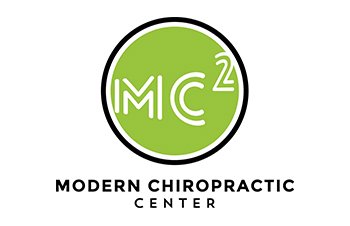Predicting Recovery in Whiplash Injuries
Have you ever wondered why one person recovers from a car crash without any long term pain, whereas another in the same of similar crash ends up suffering with permanent pain? There are factors that researchers have discovered that have an impact on chances of recovery after an injury. These are called Prognostic Factors. The following are 4 Prognostic Factors that have been shown to have a correlation with recovery:
- Initial Pain Intensity
- Initial Neck Disability Index
- Initial Cervical Range of Motion
- Initial Expectations of Recovery
Initial Pain Intensity
This is collected from the patient by asking them to write or verbally report what level their pain is form 0 to 10, with 0 being no pain, and 10 being worst possible pain. This is the easiest Prognostic Factor to record, and it is also the one that research has shown to highly correlated to long term pain and disability. There have been 7 research studies that have summarized all of the research on this item and determined the chances of having permanent pain for different pain levels.1 To use one example, Walton, in 2009 synthesized the data (meta analysis) from eight cohorts and established a cutoff point of 5.5 of 10 on a VAS, with pain greater than this demonstrating a nearly sixfold (OR: 5.77; 95% CI: 2.89–11.52) increase in the risk of persistent pain or disability at long-term follow-up.4
Initial Neck Disability Index
The Neck Disability Index (NDI) is a 10-item questionnaire completed by patients that that takes about 5 minutes to complete. The results of this questionnaire have also been shown to correlate strongly whether someone will recover from a whiplash-type of injury. When the NDI score is greater than 30% the odds are 13 times more likely that you will have chronic pain 12 months after the initial injury.6
Initial Cervical Range of Motion
Researchers have found that limited and painful movements of the neck are correlated with recovery in whiplash injuries. Gargan found that painful range of motion 3 months after whiplash injury was a good predictor of persistent pain and disability 2 years after injury.8
Initial Expectations of Recovery
A patient’s initial expectation of whether they think they will fully recover actually does influence whether they do recover. Answer the question, “from 0 to 10, how likely are you that you will have a complete recovery”. 0 is labeled ‘‘not likely’’ and 10 is ‘‘very likely’’. If you answer is 5 or above, you are over 4 times as likely to have long term pain 12 months later.
If you have been involved in a whiplash injury, you should see a health care provider that understands how initial factors may affect your likely response to treatment over time. At Modern Chiropractic Center our doctors are thoroughly trained in the most current research about how to try to get the best outcomes for patients with neck pain, headaches, mid back pain and low back pain after car crashes. You can schedule a free consultation today to see if we can accept you into care at one of our Boise or Nampa offices.
REFERENCES:
- Kamper S, Rebbeck T, Maher C, et al. Course and prognostic factors of whiplash: a systematic review and meta-analysis. Pain 2008; 138:617-19.
- Cote P, Cassidy D, Carroll L, etal. A systematic review of the prognosis of acute whiplash and a new conceptual framework to synthesize the literature. Spine 2001; 26:E445-58 .
- Scholten-Peeters G, Verhagen A, Bekkering G, etal. Prognostic factors of whiplash associated disorders: a systematic review of prospective cohort studies. Pain 2003; 104:303-22 .
- Walton D, Pretty J, MacDermid J, etal. Risk factors for persistent problems following whiplash injury: results of a systematic review and meta-analysis. J Orthop Sports Phys Ther 2009; 39:334-50 .
- Williamson E, Williams M, Gates S, et al. A systematic review of psychological factors and the development of late whiplash syndrome. Pain 2008; 135:20-30.
- Walton DM, et al. Risk factors for persistent problems following acute whiplash injury: update of a systematic review and meta-analysis. J Orthop Sports Phys Ther. 2013 Feb;43(2):31-43.
- Sarrami P, Armstrong E, Naylor JM, Harris IA. Factors predicting outcome in whiplash injury: a systematic meta-review of prognostic factors. J Orthopaed Traumatol. 2017;18;9-16
- Gargan M1, Bannister G, Main C, Hollis S.The behavioural response to whiplash injury. J Bone Joint Surg Br. 1997 Jul;79(4):523-6.






